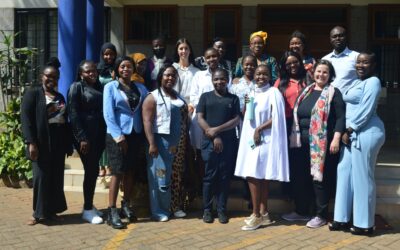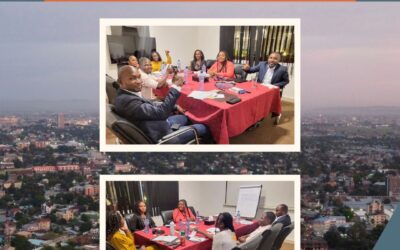Free the Slaves and Participación Ciudadana filed a friend of the court brief this week in the Dominican Republic’s Constitutional Court to get child marriage declared an unconstitutional practice that harms girls and permanently affects their rights.
The brief, filed on behalf of the Civil Society Coalition against Trafficking in Persons, supports a case filed by the International Justice Mission.
According to the 2014 ENHOGAR-MICS survey, 40 percent of young women in the Dominican Republic (between 20 and 24 years old) were married or joined before age 18, and 12 percent did so before age 15. Both figures are among the highest in Latin America and the Caribbean, and well above the regional average for adolescents under age 18 who are married or in union (23 percent) and more than double the regional average for adolescents under 15 years of age (5 percent).
“Child marriage is a clear violation of human rights, with girls being the most disadvantaged, who are considered burdens or merchandise as a result of widespread gender inequality. This practice violates Articles 39.4, 43 and 56 of the Constitution, and Articles 2 and 12 of the Convention on the Rights of the Child, on the best interests of the child and the right to express an opinion and be heard,” the coalition activists said.
The data also unequivocally demonstrate that behind every child marriage there is a situation of sexual exploitation toward the minor spouse, with a marked incidence of gender violence.
Even though the Dominican Republic is a high-middle-income country, the incidence of child marriage is similar to that of low-income countries where child marriage is common. Child marriage and early unions especially affect girls living in the most impoverished sectors in the Dominican Republic: rural and peri-urban areas. Nearly 60 percent of girls in the poorest quintile marry or join before age 18 and 23 percent do so before reaching age 15.
“The participation of Dominican civil society in this case is a fundamental component in the fight against human trafficking in the country, given civil society’s additional responsibility to contribute to suppressing this very serious violation of human rights, demanding that all people live together in accordance with the values inherent to human dignity: equality, freedom and justice,” the coalition activists stated.
The organizations of the Civil Society Coalition against Human Trafficking that signed the amicus curiae are: Free The Slaves (FTS), ParticipaciónCiudadana, Observatorio de Migrantes del Caribe (OBMICA), Movimiento de Mujeres Dominico Haitianas (MUDHA), Oblatas of the Most Holy Redeemer, Fundación Centro Nuestra Esperanza (FCNE) and the Sociocultural Movement for Haitian Workers (MOSCTHA).
Learn more about the Free the Slaves program in the Dominican Republic here.



